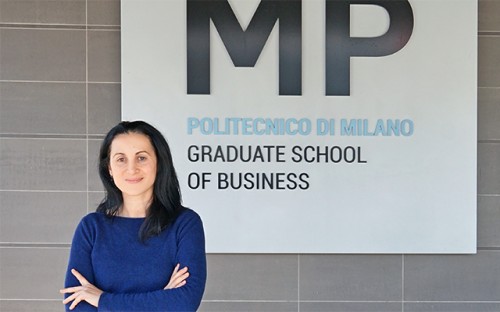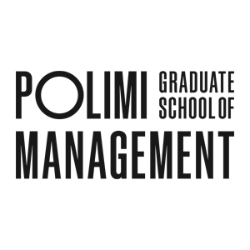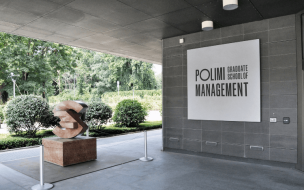In 2003, MIP welcomed candidates of 11 different nationalities onto its full-time MBA program. 15 years on, the MIP MBA class is 70% international and welcomes over 20 different nationalities on-campus.
In recent years, MIP has welcomed its first students from diverse countries like Bahrain, Canada, Ireland, Pakistan, and the Philippines.
“Companies want people with an open cultural mind-set, who can connect with others anywhere in the world,” Greta explains. “This is something that only a person who has travelled or studied in a different country can have.
“By studying abroad, you develop flexibility and the skills to adapt to a new environment—that’s what companies are looking for.”
MIP has a unique insight into the needs of industry—the school itself was formed as a non-profit consortium, with 20 companies and multinationals on the board along with Assolombarda, the largest territorial association of the entrepreneurial system in Italy.
As Greta recalls, “these companies were looking for international candidates with a different approach as they were entering different markets. They pushed us to attract more diverse students and, at the same time, we’ve helped them develop because we started to offer them new candidates. It’s a win-win situation.”
Through this conversation with international companies, MIP Politecnico di Milano has been through a process of redesigning its full-time MBA program over the past 15 years.
This has meant transforming teaching methods, bringing in new members of faculty, making further links with international businesses, accounting for different religions, and even changing what’s on offer in the school’s canteen.
Today, MIP hosts an equally diverse group of extended faculty, with staff coming from six nationalities and speaking nine languages. Greta is first to admit that the school has learned as much from the internationalization process as the students do on their degree.
“Increasing internationalization is not easy. You have to learn to support people from different cultures. It can be challenging to mentor and help people from completely different backgrounds.”
But, she feels the rewards in bringing together students from 80 different nationalities and five different continents are evident: “We are a dynamic school—we are never still. Every year brings new challenges. We bring new points of view to students and change and adapt our program continuously. The biggest result of this internationalization has been to create a truly dynamic environment,” she says.
For Greta, this shift at the school has been mirrored by a city-wide movement, with Milan starting to reap the benefits that internationalization can bring.
“It really benefits the city,” she explains. “No one spoke English in 2003, but now it’s different. Shops, restaurants, even post offices, have had to change the way they’re offering services.
“As a result of this change in culture, and MIP’s ability to help students start new careers, we now see a lot of our international students remain in Italy. In 2003, international students would go back to their own country after graduation; but now they stay. The country is more welcoming and these students are bringing value.”
The global exposure of the MIP MBA is further enhanced by the school’s international partnerships and offers of study exchange opportunities in 10 different countries—France, Spain, Mexico, Brazil, Hong Kong, China, India, Australia, the USA and the UK.
After this 15-year journey, what’s next for MIP Politecnico di Milano?
“Internationalization was what we started from 2003 to today, and it’s still continuing,” Greta continues. “From 2014, we have started pushing towards digitalization.
“We are also launching a new platform—FLEXA—focused on helping students and professionals find [all] the resources and information that they need.”
Get a glimpse of MIP's new FLEXA platform below:
Student Reviews
Polimi Graduate School of Management







